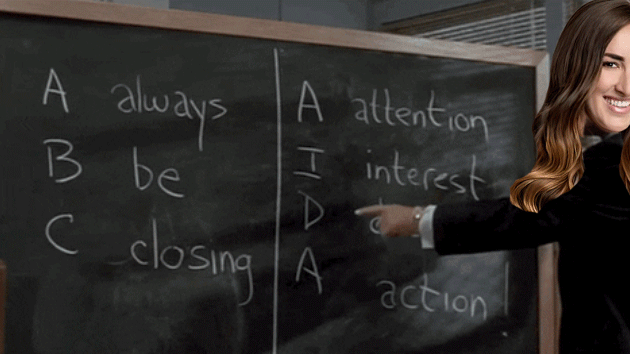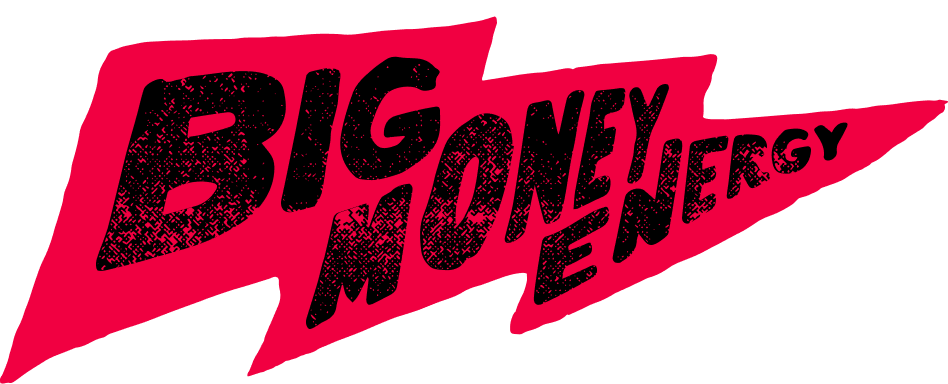Today in 10 minutes or less, you’ll learn:
- Mental Model: OPM – Other People’s Money
- Why Would Anyone Sell their Business?
- 7 Horsemen of the Great Sell-Off
- 7 Ways to Do Deals with $0
MENTAL MODEL
OPM
OPM = Other People’s Money. How to get it. How to earn it. How to buy businesses for the least amount of money possible. Does that sound good to you? No matter how much wealth you’ve accumulated there is a saying in investing, “I like to use cash, just not mine.” It’s why private equity firms do giant leveraged buyouts (LBO) using the bank’s money to accelerate growth. For instance, KKR has $471 billion and yet when they bought TXU Energy they did an LBO for $32 billion. That happens to be the largest LBO of all time and was funded using a mixture of OPM debt and loans. Big and even retail investors realize the value of “other people’s money” aka OPM. That’s why we use mortgages to buy houses.
The second best thing to having a ton of money is knowing someone else who does and will give it to you.
As we look at the market I see a horizon coming full of deals to be had but many humans don’t know how to fund them. Let’s close the gap, shall we?
One Man’s Story:
He’d put the key in the lock, flipped on the lights, opened the doors, and put out his sign just like this for the last 25 years. It was just another Tuesday. But today, the key wouldn’t turn as fast, the sign was a little heavier, and the door harder to open. He was tired. He’d run this coffee shop in his small town for his whole adult life. It’d put his kids through college, it’d sent them on vacations, and bought them a new house or two. He knew the names of his neighbors and sometimes, even got their “I’ll have my regular” right. Thousands and thousands of coffees later and the smell wasn’t quite as sweet. So many years ago when he’d put up the sign, “Roaster & Sons” he’d thought his kids would carry on the mantle. They’d replaced aprons with ties. And yet, proud. He was so proud of them. There was one rather large problem. Despite the money, he made each year, and the profits they stacked, if he had to look at one more fing coffee, he might have to take a baseball bat to it.
This my friends is often why people sell their business. The internet is littered with people saying “CODIE WHY WOULD SOMEONE SELL A BUSINESS THAT IS MAKING $200,000 IN PROFIT? YOU LIAR.” Sigh. Because you nincompoop, does anyone want to do anything forever?
My more balanced response would be, what I now call the 7 D’s. Do you want to know why a business sells?
The 7 Horsemen of the Great Sell-Off:
- Death – Seems to speak for itself. Death of a partner or an owner.
- Divorce – 50% of partnerships end in divorce. It is a triggering event that can lead to asset sell-offs or moving.
- Disease – Without your health, running a business is tough enough. Now add health issues.
- Disagreement – Partnerships fail, operators quit, landlords evict, all of these can be a reason why a business sells.
- Distress – Business is hard, 20% fail in the first, year 90% over time
- Dullness – The average length of someone running a small business is 8.5 years. Attention is a tough commodity.
- Departure – Over 50% of all business owners are 55+, they are preparing for retirement or perhaps their second or third inning.
Not to mention look at what happened during the pandemic. Over 60% of businesses closed their doors forever. I’ve always thought it’s a tragedy that any business closes its doors for $0, there are always some assets to repurpose.
So now we get to step in. White knights saving someone’s legacy from irrelevancy, keeping employees employed, allowing another small coffee shop to stand up to a Starbucks, and continuing your customer’s favorite product. Buying a company for $0 doesn’t mean that you’re predatory, it means a continuation of something beautiful when done right.
LET’S DO A DEAL
7 Ways to Buy a Business or Do a Deal w/ $0:

#1 Customer Acquisition for $0
Let’s say a business is closing in your area, what if you reached out to the owner and repurposed their clients to your business? You propose a deal to refer their clients to you, they get a % of the revenue of clients who sign up and you help the owner craft a ‘Goodbye or transition plan.’ In one fell swoop, you’ve allowed the owner to get an annuity, given those clients a new home, and cut yourself into a revenue stream or a new business line.
Here’s how I’d do it:
- First, reach out to all of the owners of the businesses in your sector who have closed or are closing.
- Tell them you want to help them recoup some of their costs.
- Why don’t they do a deal where you give the owner 50% of all the revenue from the client, and they transfer over to your business for 6 months or even a year of them being a member? (Look at your individual COGS to figure out what you could afford here).
- You could even structure this as a % payout over a multi-year period based on future sales so they have an income for a few years and you get to defer payment.
- Bring in the closed owner to your studio/business to do a final farewell class/evening, or a week of classes and handhold their clients over.
- Help the owner draft up an email/social/marketing etc for all their clients to explain how they didn’t want to leave them without a home, so they found them one.
- Give the owner a lifetime membership to come to your business, and welcome them to the family.
- Create an email and marketing sequence that drips on the new customers for a few weeks to close them.
What we just did is acquire all of this business’s customers for nothing. We gave them a home. We gave the dejected owner a win. Hell, the owner could even say they sold their business instead of closed it. Those ego blows help.
#2 Referral Fee for Customer Acquisition
What if you don’t own a business? Same idea but a case study.
“I had a UA’er (a member of our Contrarian Community) reach out to a local restaurant owner who was going out of business. We asked if they would send their client email list a final goodbye email with a discount code that was good for a year at a restaurant nearby we loved that was staying open.“
- Anytime their clients bought with that code for 25% off, the old owner made some money, and the clients were taken care of.
- That restaurant owner had a list of 15k clients, he made $2,250 in 2 weeks following his sending that code out.
- Our UA’er has now made $1k off that email sent and continues to make $100+ a week from that affiliate code.
- As for the new restaurant owner – that client list he essentially bought into for $0 has netted him more than $20k.
- Once he realized that this strategy would be useful, he switched his list over to being a recommendation email list with the “best of” picks by the owner. So that is almost $23k from a business that previously was going to evaporate with $0 worth. The email was very moving, hearing an entrepreneur’s story of closing moves us, and it moved their customers to the tune of $20k.
#3 Employee Acquisition for $0
Anyone think it’s easy to hire right now? Ok ya, us either. Well how about this… closing business refers employees to you. You pay a finder fee for all employees who stay over x period OR owner & employee get a % rev share of profits for clients brought over. In VC land this is pretty normal, it’s called Aqui-hiring. We did this with instructors at a popular gym and added 100+ clients.
- Do the same process with employees of the other gym owners/your sector biz.
- Ask the owner to help with transferring their best employees or contractors AND THEIR ROLODEX OF CLIENTS.
- You give the owner and the employee a % rev share of profits for any of their clients that come over.
- You give them off hours that you currently don’t have filled to do their classes.
- You bring them in to co-teach a class with one of your other instructors.
- By acquiring employees through revenue or profit share you are growing inorganically with ZERO dollars out of pocket.
- Those who don’t work out to offset their costs you don’t keep.
Contrarian crew, if you run a business and you aren’t out there trying to buy up your competitor’s closing, YOU ARE MISSING A HUGE OPPORTUNITY.
#4 Seller Financing
Now this one isn’t $0 but it can be amounts of all levels. Seller financing means simply that you buy a business or an asset of any kind, and the seller finances your purchase through the profits of the business over a period of time. We’ve written often on this practice and how to negotiate these types of deals. But I thought I’d give you a new story…
Brandon of Investment Joy did this exact process:
- Total deal size = $675k, but 94% was seller financed: Brandon put in $40k for his own money for the down payment and the other $635k was negotiated as seller financing with 3% interest.
- Of his 3 main businesses, they are more than 90% seller financed
#5 Revenue OR Profit Share Acquisition
What if you could buy into a company using your ability to bring on clients as your equity and cash flow? We teach students every day how to turn their sales and marketing ability into ownership in a company. Here’s an example in real life:
- I spend $2-6k a month on video production
- So I thought why not buy the company I pay now
- I put down $10k+ and new revenue milestones (aka helped them increase sales by 30%) for 40% of the business
- Now I MAKE $5-8k on the biz a month
- I continue to help them grow the company while cash flowing and having equity if we sell
#6 Cost Decrease Acquisition
Perhaps you are not the salesman type. There is no marketer in you capable of increasing revenue and sales. Well, my friend, what is the other way to pocket more cash? Decrease expenses. Most private equity firms of scale do not just grow businesses they cut costs. How will Elon Musk come in and right-size Twitter? He’ll cut 75% of the workforce. How can you get equity without money to invest or revenue to bring in? Cut what is not crucial.
- Track exactly where money is currently deployed
- Actively manage working capital
- Zero-base the capital budget (every expense needs to be justified)
- Free fixed capital (real estate, big cap-ex)
- Employ alternative ownership models
- Create systems to prevent “capital creep” (increasing costs)
This is the single most undervalued skill set by founders and business owners because it feels awful. Close a new sale – CELEBRATE. Cut underperforming team members – FEEL BAD. We are giant emotive machines. But the truth is that most businesses in the world of low-interest rate glut are overstaffed and overfat. Learn to cut the cancer without killing the patient and you’ll get paid like a surgeon.
#7 Loans
Let’s say you have zero money to utilize, no friends to ask for it, and no skills to negotiate for it. What do you have left? Access to money through debt. If I could plead with you one thing, it’d be to learn about intelligent debt use. We did a whole video on one type. But add SBA loans, grants, and debt through lines of credit or equipment loans and you’ll quickly realize you don’t just need “money” you need to understand finance.
The truth….
If you read the above and say, “That won’t work for me,” it probably won’t. If you read the above and think, “How could that work for me?” It just might.
I’ve built broke.
I’ve built scared.
I’ve built alone.
It’s never the right time to build something.
It’s never the right time to buy something.
But it’s also always the right time.
You can’t deposit excuses,
Codie & the Contrarians
Written by Codie Sanchez, edited by the Contrarian Team
SPONSORED
Beat the Recession in the Next 100 Days:
If you liked what you just read and are now thinking about ways to buy your first business…keep reading. Listen, we’re big fans of skipping the years of start-up required to own a thriving business.
So we shared all of the processes, all of the templates, and all of the details of how we did it…and we’re offering it to readers of Contrarian Thinking.
So if you’ve always wanted to run your own Small Business like Codie and her partner Ryan (ps…they own more than thirty businesses between them) then dive into this 15-hour course to learn to acquire businesses as the big corporations do but in the SMB landscape.
CONTRARIAN FINDS
The Not So Boring Section:
- The ‘Short Squeez’: Have you ever wondered what the top minds of Wall Street are investing in? We kinda did too. Then we found The Short Squeez. Their ‘Insiders’ cover topics like portfolio reviews, investment ideas, and picks of Wall Street’s finest. Join 170k investors today and get a free hard copy of Two and Twenty, written by private equity guru Sachin Khajuria (ex-Apollo partner).
- Higher education = worth it??: College admissions dip again, a declination for the 3rd year in a row with 1.5 million fewer students enrolled than pre-pandemic. Not surprised. Today, a few high-quality YouTube channels are worth more than a Harvard degree. That cat’s not going back in the bag.
- In a Pickle: Kevin Durant is the latest athlete to join the high ranks of celebrities who own Pickleball teams. He purchased the team through his venture fund Thirty Five Ventures, and joins others like Tom Brady and Drew Brees as proud MLP owners. I guess I just don’t see the appeal?




